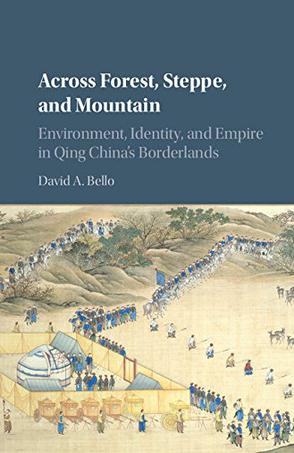
章节目录
Introduction 1. Qing fields in theory and practice 2. The nature of imperial foraging in the SAH basin 3. The nature of imperial pastoralism in southern Inner Mongolia 4. The nature of imperial indigenism in southwestern Yunnan 5. Borderland Hanspace in the nineteenth century 6. Qing environmentality.
内容简介
In this book, David Bello offers a new and radical interpretation of how China's last dynasty, the Qing (1644–1911), relied on the interrelationship between ecology and ethnicity to incorporate the country's far-flung borderlands into the dynasty's expanding empire. The dynasty tried to manage the sustainable survival and compatibility of discrete borderland ethnic regimes in Manchuria, Inner Mongolia, and Yunnan within a corporatist 'Han Chinese' imperial political order. This unprecedented imperial unification resulted in the great human and ecological diversity that exists today. Using natural science literature in conjunction with under-utilized and new sources in the Manchu language, Bello demonstrates how Qing expansion and consolidation of empire was dependent on a precise and intense manipulation of regional environmental relationships. Combines under-utilized and new sources in the Manchu language with natural science literature Complements a general professional and publishing trend in environmental history relating both to China and to global history of the early modern period Offers a new, radical interpretation of how China's last dynasty relied on the interrelationship between ecology and ethnicity to incorporate China's borderlands into its expanding empire
下载说明
1、Across Forest, Steppe, and Mountain是作者David A. Bello创作的原创作品,下载链接均为网友上传的网盘链接!
2、相识电子书提供优质免费的txt、pdf等下载链接,所有电子书均为完整版!
